Introduction
From at least the 4th century Christians have commemorated the last week of Jesus’ life.
In the past I have used Mark’s gospel to walk through these days with Jesus. Here I include passages from John and Luke. Why? Here’s what I now think about the four accounts.
St Mark. I definitely think this is the closest to the actual events and the most vivid, based on the memories of Peter, an eyewitness.
St John. I used to find this confusing, not knowing how much was history and how much theology. Reading Bauckham’s book “The Testimony of the Beloved Disciple”, convinced me that it was written by a Jerusalem disciple, also an eyewitness. He created discourses and conversations in the manner of ancient biographies, his words, but still using his memories.
St Luke. I think that Luke wrote his gospel about 60 AD when Paul in prison. He then found Mark’s gospel in Rome. So his account of the trials and crucifixion is as early as Mark’s, also from Palestinian traditions.
St Matthew. He editorialises, and adds extra stories. Except when occurring in other gospels, I don’t necessarily believe him, e.g. the earthquakes when Jesus died and rose, and the guards at the tomb.
My arguments can be found in two blogs on www.bibleinbrief.org: ‘Can we trust the gospels?’ and ‘The Puzzle of John, a Solution’.
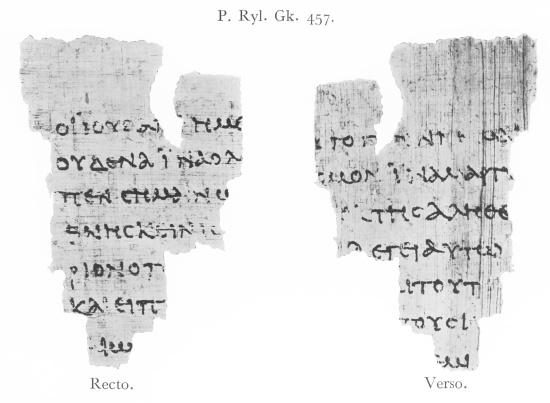
PROLOGUE
Our journey with Jesus begins two days before Holy Week. Jesus has set his face towards Jerusalem and is walking there, not from Galilee but from Judaea, near the river Jordan (Mark 10.1, John 11.54)
FRIDAY BEFORE PALM SUNDAY
Morning Mark 10.32 – 45 A vivid description of Jesus’ last journey. And an inappropriate request from the two Zebedee brothers. The last verse is Jesus’ mission statement. What difference would it make if we made this the litmus test of how we live our lives?
Afternoon/Evening Luke 19.10 Friend to the friendless.Jesus sees a man up a tree – just not the done thing – and he invites himself to stay with the most unpopular man in Jericho .Is this story good news or bad news for you?
SATURDAY BEFORE PALM SUNDAY
The Sabbath. No long walks! Jesus would have gone to synagogue.
Morning Luke 19.11-27 A harsh history lesson. When Herod the Great died, his son Archelaus went to Rome to get the Emperor’s approval of him being king. A rival delegation went asking Augustus not to appoint him. They failed and paid the price. The error of the slave who hid the pound (about £10,000) in the ground is that he was playing it safe, not choosing a side. Archelaus ruled so brutally that after 10 years the Romans deposed him. When is playing it safe not playing it safe?
Afternoon/Evening John 11.47-57 The plans of the powerful.The disciple was “known to the high priest” (18.5). So this account of the response of the authorities could well be accurate. What is our attitude to troublemakers?
PALM SUNDAY
When the Sabbath was over, Jesus would have set out early to walk 18 miles uphill to Jerusalem, before it got too hot.
Morning Mark 10.46-52 Healing a blind beggar.Think of all the people who “followed Jesus on the way” – both in the Bible and in our own acquaintance. How can I follow better?
Afternoon Mark 11.1-11 Jesus public arrivalat Jerusalem, supported by thousands of Galilean pilgrims, was organised secretly so as to get under the radar of the authorities.When is it right to do something publicly, when is it right to keep quiet? How do we use social media?
Evening John 12.1-11 Mary of Bethany’s love gift Mary poured expensive ointment on Jesus’ feet, expressing her love and gratitude.(John puts this before the entry into the city, Mark puts it later in the week. Your choice).Is our religion sometimes too safe to be extravagant?
MONDAY
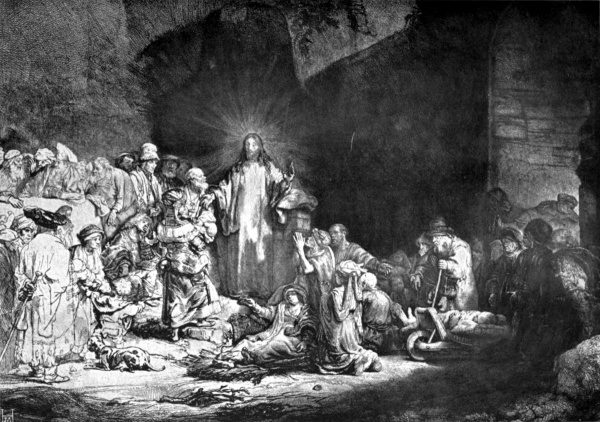
Morning Mark 11.12-19 Judgement is coming. Cursing the fig-tree was an acted parable. The Temple authorities looked good, but were useless to God. Then Jesus takes over the enormous Court of the Gentiles. People are forced not to use theTemple as a short cut (v.16) It wasn’t a demonstration, it was an occupation!Is there such a thing as righteous anger? And if there is, do we prefer a quiet life?
Afternoon John 2.13-25 Where is the true temple?John puts the cleansing of the Temple at the start of Jesus’ ministry; I believe that Mark has placed it at the right time, but that Jesus’ reply to the authorities is correct, because it was one of the charges against him at his trial.An example of Jesus’ ‘Zen’ sayings. What could his hearers at the time have made of it?
Evening Luke 21.37-38 The daily routine“Every day he was teaching in the temple, and at night he would go out and spend the night on the Mount of Olives, as it was called. And all the people would get up early in the morning to listen to him in the temple.” Work out your own daily timetable if you had been a pilgrim at that time.
TUESDAY
Morning Mark 11.20-33 Challenging power. Jesus revisits the fig tree and is challenged by the authorities while he “was walking in the temple courts”, and skilfully wrong-foots his opponents. Whose side would you be on in the argument between Jesus and the authorities? Why?
Afternoon Mark 12.1-12 A powerful pointed parable. Jesus’ prophetic understanding of Israel’s history (not good). And the authorities had already decide to get rid of this northern trouble maker. Note: Absentee landowners were a big social and economic problem in Palestine. How might we recognise where God is at work, and when might we get it wrong
Evening John 12.20-36 Enter the Gentiles. Jesus foresaw that his rejection by Israel would result in a new opportunity for God to work among the pagan nations of the world. But the disciples did not get it. Even after the resurrection, they asked, “Are you at this time going to restore the kingdom to Israel?” (Acts 1.6) Note: verses 24-26 all reflect sayings in the other gospels.“A seed has to die before it can grow.” Is there anything in your life that is an example of the old gospel hymn, “If you don’t bear the cross, you can’t wear the crown” ?
WEDNESDAY
A whole day of teaching and responding to challenges from the great and the good.
Morning Mark 12.13-17 The Treason Trap. A question to force Jesus to be either a rebel or a collaborator. But Jesus worked on a different binary option.What is a key guiding principle in your life?
Mark 12.18-27 “When I die I rot” – or not? At last Jesus gives a straight answer.What do you think will happen to you when you die?
Afternoon Mark 12.28-34 The Great Commandment. Jesus simply quotes the ABC of the Jewish faith, and the teacher of the Law agrees.What can you do to make these challenges a reality in your life?
Mark 12.35-37 The Marks of the Messiah. Jesus subverts the traditional expectations.How else did Jesus understanding of his call as Messiah (or Christ) confound people’s thinking? See Mark 9.31-33.
Mark 12.38-44 Rich and Poor. Jesus is uncompromisingly on the side of the poor. Early on he said, “Blessed are you poor, for yours is the kingdom of God.” (Luke 6.20)Does this make us feel uncomfortable? If not, why not?
Evening Mark 13 The Labour Pains of God’s Future. Around 330 a church was built over a cave on the Mount of Olives where by tradition Jesus had taught his disciples. The Lord’s teaching on the end times would be read here on the Tuesday of Holy Week. Jesus speaks of the destruction of Jerusalem, persecution and God’s final victory. To read it in the shadow of the cross gives it a whole new meaning.Hope/Despair. Find one verse which speaks of hope and one of despair. What does it mean to “stay awake” or “watch”?
THURSDAY
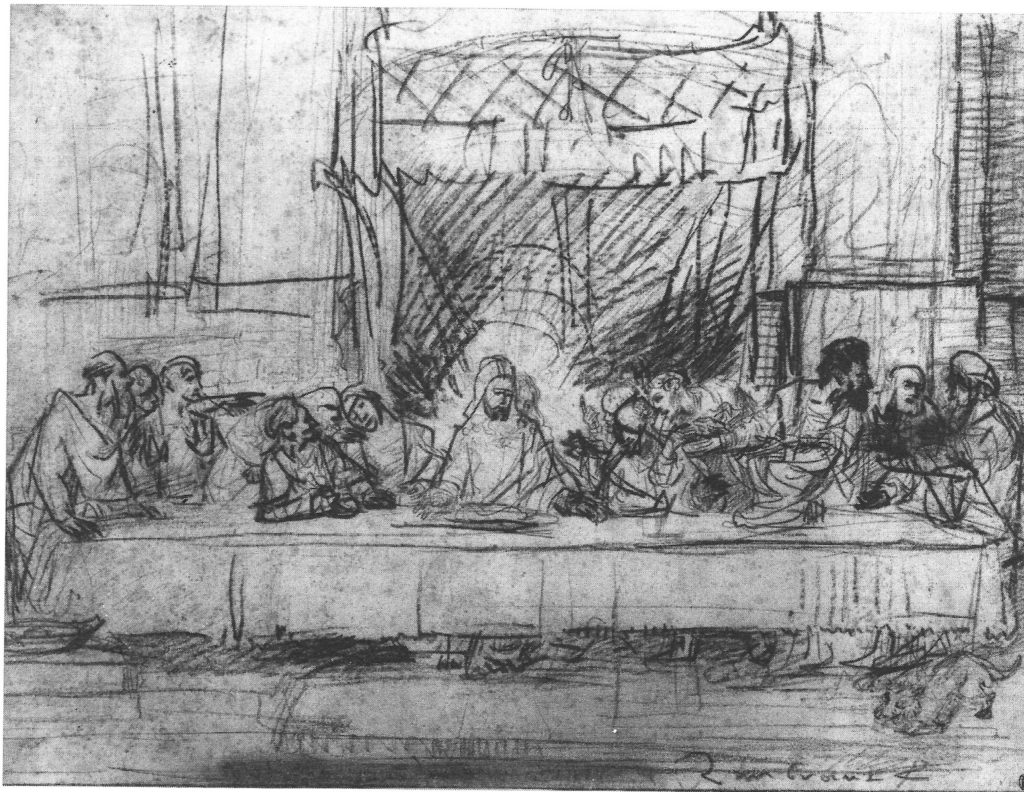
Morning Mark 14.1-2, 10-16 Meeting secretly.Jesus clearly had a network of disciples in Jerusalem, with secret signs to put his enemies off the scent. The disciples just had to follow orders and prepare supper.Can housework be Christian work?
Evening 1 John 13.1-30 Jesus the slave, betrayed. Washing feet was the duty of a menial slave. How shocking that Jesus should do this. Imagine Jesus washing your feet. How might that change you?
Evening 2 Mark 14.22-31 Bread/wine, body/bloodMy Jewish father said about holy communion, “That’s cannibalism!” What meaning did the disciples give to these shocking words?What could they mean for you?
Evening 3 Mark 14.32-51 Gethsemane Jesus went to their normal rendezvous-point so that Judas could catch up. (John 18.2) Jesus struggles in prayer to accept his coming suffering and death – which he could have avoided by simply walking away. “Not my will but yours be done.” Can you make this your lifestyle prayer?
Night 1 John 18.12-27 The hearing before AnnasJesus’ actions had rushed the authorities to move before they were ready. The hearing before Annas was probably a delaying tactic while Caiaphas assembled a reliable quasi-legal body and witnesses.Jesus stood up for a proper legal process. When should we stand up for our legal rights?
Night 2 Mark 14.53-72 Jesus is condemned to death Because the trial was so rushed, the issue was clear: follow Jesus or kill him. Out of fear, Simon Peter opted for a third way, “I don’t know the man.” Is Jesus at the centre of your life, on the periphery or right outside?
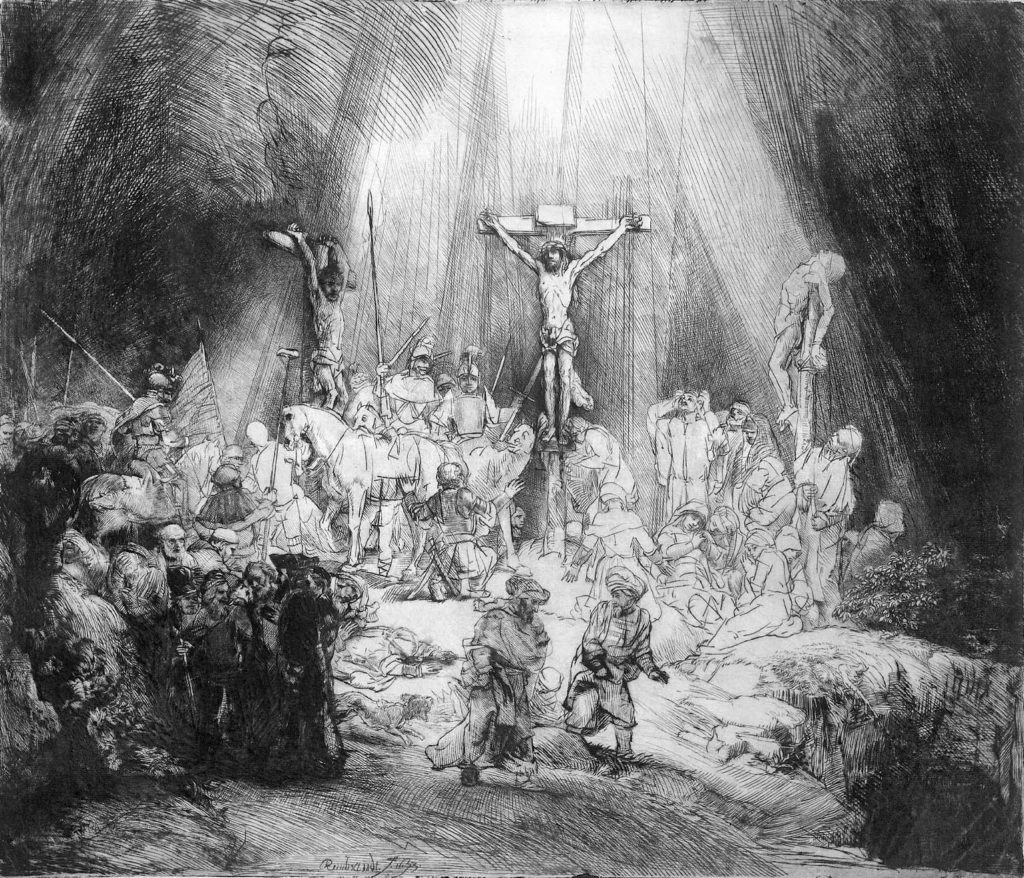
GOOD FRIDAY
Morning Luke 23.1-31 The Trial before PilateFriday morning started with a quick legal trial (in daylight), and a handover to the Roman Governor. He didn’t know what to make of it, but used it politically to mend bridges with Herod of Galilee, whose palace was ten minute’s walk away. (Note: The crowd on Palm Sunday were Galilean pilgrims. On Friday they were from Jerusalem). And Jesus? He stayed silent.Does putting politics before principles necessarily result in injustice
Afternoon Mark 15.21-39 Crucifixion Crucifixion was the cruellest, most humiliating form of execution. Dying could take days. It looked like utter defeat. Yet at his death the curtain between the Holy Place and the Holy of Holies in the temple split in half. A sign?(For another account see John 19.25-30) Why is Good Friday called “Good”?
Evening John 19.31-42 A hurried burialTwo wealthy secret disciples take charge of Jesus’ burial.It’s remarkable that it took Jesus death’ on the cross to get Joseph and Nicodemus to make a public stand. Why do you think they did so?
SATURDAY “On the sabbath they rested according to the commandment.” (Luke 23.56)
EASTER SUNDAY
Morning 1 Mark 16.1-8 Probably the earliest account “Grave event at Graveside. Who is the Mysterious Stranger? Galilean Preacher’s Body Disappears!” (headlines from the Jerusalem Gazette) What would you think had happened?
Morning 2 John 20.1-18 “Race to the tomb.” “Emotional woman’s bizarre claims!” (headlines from the Jerusalem Gazette) “These words seemed to them an idle tale, and they did not believe them.” (Luke 20.11)What would you have thought?
Evening John 20.19-23 Seeing the Lord! Proof at last! (if you were there).What would convince you?
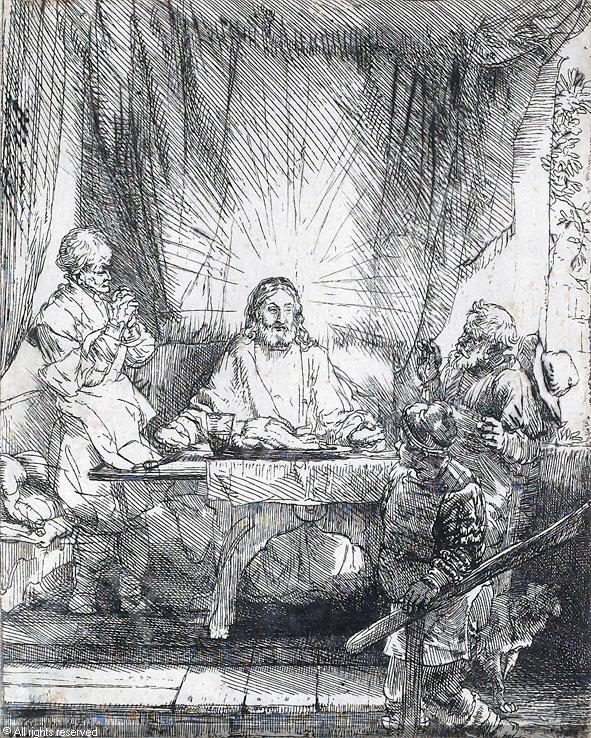
Next St Cuthbert’s Talk, Monday 13th May at 7.00 What did happen on Easter Sunday?
